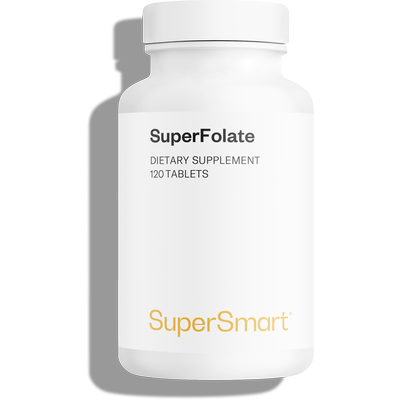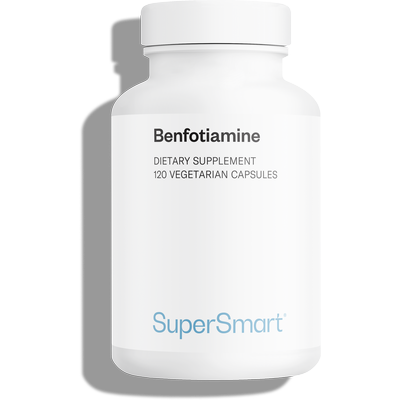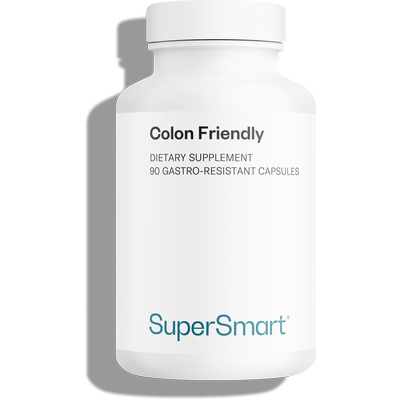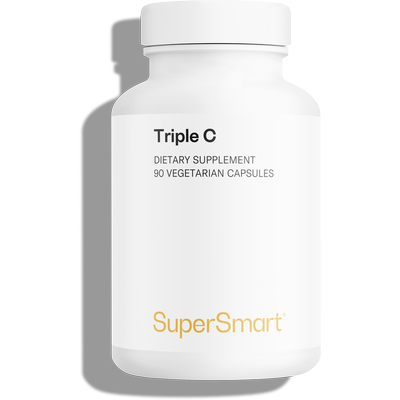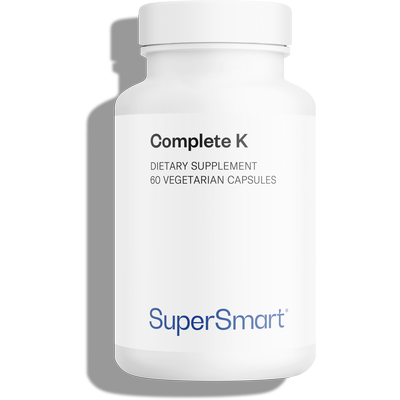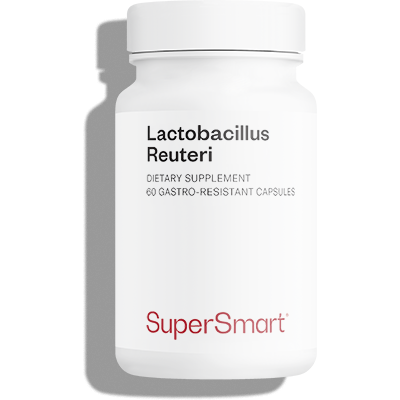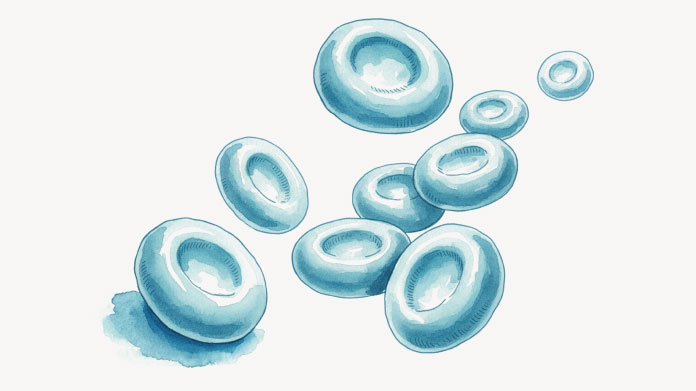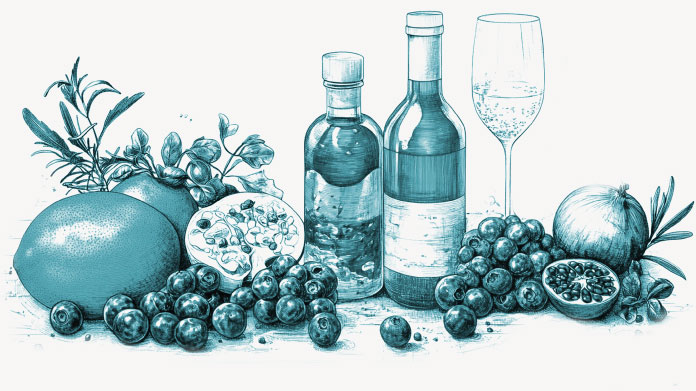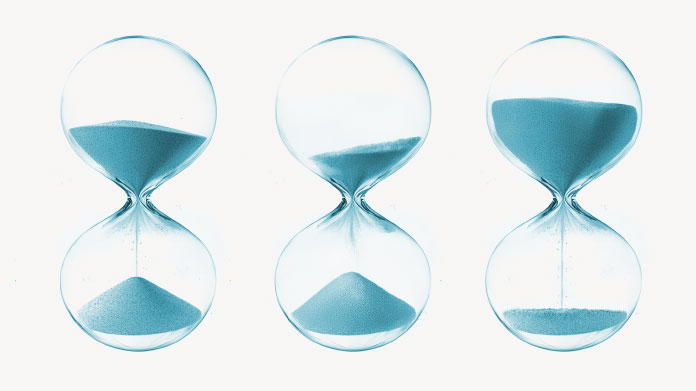Can you still take supplements once they are past their expiry date?
Does a dietary supplement past its expiry date necessarily have to be thrown away? Read on for the answers.

BBD, UBD – what do these mean?
There will definitely be a date marked on the label of your supplement. But do you know what it really means?
It is normally a best before date (BBD), indicating the limit of its period of optimum efficacy . Up to this date, the product will still retain all its physical, organoleptic (eg, taste, colour, odour and feel), and biochemical properties.
So it is not, strictly speaking, a use by date (UBD) which is the date beyond which a product should not be consumed in order to avoid any risk to health.
A supplement a few days past its expiry date is not a problem
If your supplement expired just a few days or weeks ago, there is no need to put it straight in the bin. As explained, the date indicated does not relate to its safety. At worst, your product will have a reduced effect but it will not pose a risk to your health: generally speaking, supplements (with the exception of probiotics) can actually be taken as much as 3-6 months after their BBD.
Nonetheless, it pays to remain vigilant. As with foodstuffs, trust your instincts when it comes to spotting any unwelcome microbial growth. If you see any sign of mould on your vitamins, or notice an odd smell coming from the jar or pot – chuck it!
Factors affecting the preservation of supplements
A dietary supplement’s stability will vary somewhat depending on its composition or delivery method. Various parameters intrinsic to the product may require a greater degree of compliance with the date stipulated by the manufacturer:
- the combining of active principles: these do not always change at the same rate over time, or they can change more quickly when used synergistically;
- the presence ofexcipients ;
- the galenic form, with liquid supplements being more vulnerable (1-2) ;
- the nature of the container and how impermeable it is to external agents: transparency of the jar, how well-sealed it is …
Substances which are particularly vulnerable
Over time, certain vitamins degrade faster than others and lose their potency. Therefore, once the expiry date has passed, it is best to replace them quickly to ensure their health benefits remain optimal.
Vitamin C (present in Triple C, an excellent, synergistic trio of ascorbic acid, calcium ascorbate and ascorbic palmitate) and vitamin B1 or thiamine (present in Benfotiamine, a highly-available source of thiamine) are particularly subject to deliquescence : by dint of opening the container every day, they partially dissolve on exposure to humidity. So it makes sense to keep them in a cool, dry place! (3)
Another delicate substance is vitamin K (the ingredient in Complete K, a cutting-edge complex combining the 3 best forms of vitamin K).
As mentioned above, take extra care with microbiotic supplements (such as Colon Friendly, and Lactobacillus reuteri, all of which provide invaluable support to gut flora) which are live organisms: while they keep well in the fridge, it’s best to get rid of them once they’ve passed their expiry date (4).
Expectant mothers: respect the expiry date!
When it comes to pregnancy, don’t take any chances! When a health professional advises a pregnant woman to take supplements, it’s because it‘s necessary in order to meet herbasic needs and those of her foetus (5).
We’re talking in particular about folate (vitamin B9) which supports maternal tissue growth during pregnancy(6). In most of Europe, supplementation is routinely recommended before conception and during the first weeks of pregnancy. In this particular case, reduced efficacy is not an option: if it’s expired, throw it away!
Expired supplements: what should you do with them?
If you’re tempted to take them back to the pharmacy, remember that dietary supplements are not drugs: they, like personal care products, will not be collected.
You can therefore throw them away… making sure you follow these rules: the supplements themselves go in with the household waste (usually a black bin), while the plastic containers and cardboard packaging go into their respective recycling bins (usually red for plastic and blue for cardboard).
Avoid pouring any liquid supplements down the drain in order to protect drinking water supplies. Instead, follow the advice of the Environmental Protection Agency (EPA) to dispose of any such out of date vitamins, minerals and the like, in the proper manner:
- empty the supplements into a disposable bag, mixing them with an inedible substance to prevent any accidental ingestion by animals or over-curious children : cat litter, coffee grounds … ;
- thoroughly seal the bag;
- put it in the bin.
Final analysis: throw them or not?
Although most supplements can be taken beyond their expiry date without any risk, they will undoubtedly not deliver their maximum potential. And if you’ve made the choice to take a supplement, it’s primarily because you want to obtain its benefits: it’s therefore highly advisable to go through your supplements regularly and replace any that are well past their date with new ones. Spring cleaning should also apply to supplements from time to time!
SUPERSMART ADVICE
References
- Hiatt AN, Taylor LS, Mauer LJ. Influence of simultaneous variations in temperature and relative humidity on chemical stability of two vitamin C forms and implications for shelf life models. J Agric Food Chem. 2010 Mar 24;58(6):3532-40. doi: 10.1021/jf903342f. PMID: 20163110.
- Temova Rakuša Ž, Pišlar M, Kristl A, Roškar R. Comprehensive Stability Study of Vitamin D3 in Aqueous Solutions and Liquid Commercial Products. Pharmaceutics. 2021 Apr 25;13(5):617. doi: 10.3390/pharmaceutics13050617. PMID: 33922975; PMCID: PMC8147103.
- Hiatt AN, Ferruzzi MG, Taylor LS, Mauer LJ. Impact of deliquescence on the chemical stability of vitamins B1, B6, and C in powder blends. J Agric Food Chem. 2008 Aug 13;56(15):6471-9. doi: 10.1021/jf800709f. Epub 2008 Jul 2. PMID: 18593179.
- Govender M, Choonara YE, Kumar P, du Toit LC, van Vuuren S, Pillay V. A review of the advancements in probiotic delivery: Conventional vs. non-conventional formulations for intestinal flora supplementation. AAPS PharmSciTech. 2014;15(1):29-43. doi:10.1208/s12249-013-0027-1
- Oh C, Keats EC, Bhutta ZA. Vitamin and Mineral Supplementation During Pregnancy on Maternal, Birth, Child Health and Development Outcomes in Low- and Middle-Income Countries: A Systematic Review and Meta-Analysis. Nutrients. 2020;12(2):491. Published 2020 Feb 14. doi:10.3390/nu12020491
- Greenberg JA, Bell SJ, Guan Y, Yu YH. Folic Acid supplementation and pregnancy: more than just neural tube defect prevention. Rev Obstet Gynecol. 2011;4(2):52-59.
1 Days
Original product and fast delivery
Original product and fast delivery. I haven't started it yet, but will do soon.
Vincenza Catania
4 Days
Good quality
Good quality. Good service.
Leonel Guzman
6 Days
Top!!!!!!!!
Top!!!!!!!!
Michael
8 Days
Excellent!
Products are great and delivered fast!
PARDINI Debora
9 Days
From order to receive the product
From order to receive the product, the process is smooth & fast. It’s good to customers.
WONG Mei Ling
10 Days
Fast delivery
very quick delivery to italy. product is good.
Customer
11 Days
Prompt delivry !!👍
Prompt delivry !!👍
SWEET Christine
11 Days
Good delivery and flawless quality
AS far as delivery and the visual quality are concerned, Supersmart is excellent. I will not comment on the efficacy of the products themselves, since that is only possible over a longer period and in a large customer base compared to people who do not consume a particular product.
Roger De Backer
12 Days
Perfect services
Perfect services, perfect support, great articles about products
Michaela Alali Beitlová
13 Days
Great experience and effective supplements
I’ve purchased many types of supplements from this company over the course of years to treat a few issues, and I’m satisfied with their quality. After using them consistently for a period of time, I can say they met my expectations and I could feel real health benefits that built up over time. Deliveries are always quick. I recommend this company to anyone looking for high-quality supplements.
Giordano
13 Days
Es hat alles gestimmt
Es hat alles gestimmt. Top
marina thieme
16 Days
Great product
Great product, but still evaluating its effectiveness. Highly recommended. Super efficient delivery.
Chalise
20 Days
Quality products
Quality products , efficient and effective customer service. You can’t ask more
CLaudia
26 Days
Good quality product and customer service.
So far, I'm liking this product, and the customer service was very good.
ELZL
33 Days
The products I use are excel·lent
The products I use are excel·lent
ROSAS Josep Maria
of experience
your money back
##montant## purchase

